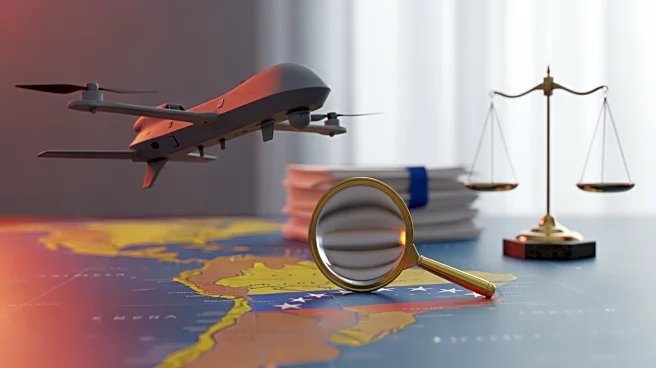What's Happening?
President Trump's military campaign against drug traffickers in the Caribbean and Pacific has raised legal questions regarding its justification. The administration claims the operations do not constitute
'hostilities' under the War Powers Resolution, allowing them to bypass congressional approval. The campaign has resulted in the destruction of vessels and casualties, with a focus on ousting Venezuelan leader Nicolás Maduro. The legal rationale is being scrutinized by lawmakers and legal experts.
Why It's Important?
The legality of the military campaign could have significant implications for U.S. foreign policy and the president's authority to conduct military operations without congressional approval. The situation highlights the tension between executive power and legislative oversight in matters of national security. The outcome of this legal debate could influence future military engagements and the interpretation of the War Powers Resolution.
What's Next?
Congress may take action to limit the administration's military authority, potentially leading to a resolution requiring formal authorization for continued operations. The legal debate could also prompt broader discussions on the scope of presidential powers in military matters. The situation may impact U.S. relations with Latin American countries and international perceptions of U.S. military interventions.









